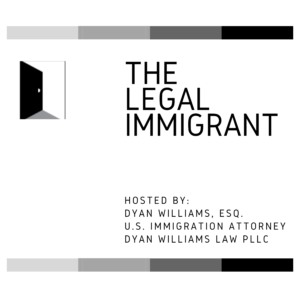 A USCIS Field Office in Ohio approved our client’s Form I-751 petition with request for waiver of joint filing requirement, despite her not living with the U.S. citizen (who had petitioned for her CR1 spousal immigrant visa) after she arrived in the United States as a conditional resident.
A USCIS Field Office in Ohio approved our client’s Form I-751 petition with request for waiver of joint filing requirement, despite her not living with the U.S. citizen (who had petitioned for her CR1 spousal immigrant visa) after she arrived in the United States as a conditional resident.
Her detailed affidavit describing the premarital courtship, married life abroad, and reasons the relationship ended in divorce was key to getting a timely approval. Her being fully prepared for the I-751 interview was another driving factor.
Divorce and No Joint Residence with U.S. Citizen Petitioner After CR1 Spousal Immigrant Visa was Granted
The couple met in the United States while the client was in lawful, nonimmigrant status. At the end of her stay, they departed to her home country, where they married and lived together for a few months. The U.S. citizen filed an I-130 petition for her, but moved back to the United States before the immigrant visa process was completed.
Their relationship was rocky from the start. Marriage counseling and other good-faith efforts to resolve their marital problems did not help. The U.S. citizen petitioner, however, did not withdraw the I-130 or his I-864 affidavit of financial support.
At the CR1 spousal immigrant visa interview, the U.S. consular officer asked very few questions and granted the application. The client became a conditional resident upon her arrival in the United States. She received a conditional green card set to expire within 2 years because her immigrant status was based on a marriage that was less than two years old.
A few weeks after she landed in the United States, she contacted the U.S. citizen petitioner to let him know she was in the country. He was not interested in maintaining their marriage and asked for a divorce. They went their separate ways when he made it clear the relationship was over.
After three years of being legally married to the U.S. citizen and one year following the grant of her conditional residence, she received the court order terminating the marriage.
Individual Form I-751 Petition with Request for Waiver of Joint Filing Requirement
The client contacted me for the first time after she arrived in the United States as a conditional resident and before the divorce occurred. In the consultation, I explained that to get the conditions removed and maintain lawful permanent residence, she normally needed to file a joint I-751 petition with the spouse before the two-year card expires, and no earlier than 90 days before the expiration.
I noted there are only three types of waivers (exceptions) to the joint filing requirement. We determined the most appropriate option was to file for the waiver based on divorce (good faith/divorce waiver), after the divorce proceeding was completed.
I counseled her to start gathering evidence of their married life, including documents showing joint residence abroad, photographs of the two of them together, text messages and emails they exchanged with each other, third-party declarations attesting to the good faith nature of their marriage, a supporting affidavit from the U.S. citizen petitioner, and her own affidavit describing in detail their relationship history and the reasons for the divorce.
Following the divorce, the client contacted me again for full representation in her Form I-751 petition with request for waiver of joint filing requirement. We submitted the petition with the documentary evidence she had collected based on my advice. I included a legal memorandum explaining how she qualified for the I-751 waiver, including the concrete steps she took to salvage a marriage that was beyond repair.
Removal of Conditions on Permanent Residence Following Attorney Appearance at Out-of-State I-751 Interview
Although Dyan Williams Law PLLC is based in Minneapolis, Minnesota, I represent clients from all across the United States and around the world in U.S. immigration matters, which is governed by federal laws, regulations and policies. I-751 interviews are scheduled at the USCIS Field Office with jurisdiction over the residence of the applicant who, in this case, is in Ohio.
The day before the I-751 interview, I flew out to Ohio to prepare the client for possible questions from the USCIS officer and address concerns she had about the pending petition.
When we appeared for the I-751 interview, the USCIS officer asked questions about when and how the couple met, their life together abroad, and the circumstances that led to the divorce.
Because the officer had reviewed the client’s detailed affidavit prior to the interview, she already had a good understanding of the relationship history. The officer also took note of the U.S. citizen petitioner’s affidavit confirming the marriage was based on love and intent to build a life together, but ultimately he no longer wanted to be in the relationship.
At the end of the interview, the USCIS officer informed us she had no issues with the I-751 petition. In essence, she determined the marriage was entered into in good faith, even though it did not last and there was no joint residence after the CR1 immigrant visa was granted.
The USCIS officer handed us a Notice of Interview Results stating, “Your case is being held for review. At this time, USCIS does not require any further information or documents from you…” She added that we would receive, in the mail, a decision or a request for evidence if more information or documents was needed.
Within a week, we received the USCIS Field Office’s Notice of Removal of Conditional Basis of Lawful Permanent Resident stating the (10-year) green card would be mailed and the request for removal of conditions on permanent residence has been approved. The USCIS National Benefits Center in Lee’s Summit, Missouri also issued the official Form I-797C, Notice of Action approving the I-751 petition. The applicant received her 10-year green card directly from USCIS.
Divorce from the U.S. Citizen Petitioner and Lack of Joint Residence During Marriage Make it More Difficult to Get an I-751 Approval
A combination of factors made it possible for the applicant to get an I-751 approval even though she divorced the U.S. citizen petitioner and did not live with him after she arrived in the United States on the CR1 visa. Without proper counselling, an I-751 applicant in this type of situation is highly likely to get a denial and end up in removal proceedings before the Immigration Court.
The I-751 applicant made a wise decision to discuss her options with skilled counsel prior to getting divorced and before her conditional residence expired. My guidance helped her to know when to initiate divorce proceedings, what documentary evidence to gather, and how to file for removal of conditions on residence after divorce.
The legal memorandum submitted with the I-751 petition and counsel’s preparation for and appearance at the interview were also significant. If the applicant had not submitted her detailed affidavit with an explanation letter from counsel in support of the I-751 petition, and had no counsel present at the interview, the questions from the USCIS officer would have likely been a lot tougher.
The applicant had the backup option of filing for a green card based on her second marriage to another U.S. citizen. This current marriage is solid and includes joint residence throughout the entire marital relationship. But I explained that a new I-130 petition and green card or immigrant visa application only had to be filed if her I-751 petition was denied and her permanent residence was terminated.
Instead of needing to start from scratch, she received an I-751 approval and had the conditions on her permanent residence removed. She remains a lawful permanent resident who will meet the continuous residence requirement for naturalization (U.S. citizenship) within 5 years of when she was initially granted the (2-year) green card.
This is a true success story.
Cheers,
Dyan Williams
Founder & Principal Attorney
Dyan Williams Law PLLC
(612) 225-9900
info@dyanwilliamslaw.com
###
This article provides general information only. It is based on law, regulations and policy that are subject to change. Do not consider it as legal advice for any individual case or situation. Each case is different and case examples do not constitute a prediction or guarantee of success or failure in any other case. The sharing or receipt of this information does not create an attorney-client relationship.
SUBSCRIBE CONTACT
Continue reading →


 The USCIS Field Office in Minneapolis approved our clients’ joint Form I-751 petition to remove conditions on residence, even though they lived apart in different states during the marriage and had just moved in together at the time of the interview. A timely response to the Request for Evidence and in-depth preparation for the I-751 interview were essential to getting the approval.
The USCIS Field Office in Minneapolis approved our clients’ joint Form I-751 petition to remove conditions on residence, even though they lived apart in different states during the marriage and had just moved in together at the time of the interview. A timely response to the Request for Evidence and in-depth preparation for the I-751 interview were essential to getting the approval. A USCIS Field Office in Ohio approved our client’s Form I-751 petition with request for waiver of joint filing requirement, despite her not living with the U.S. citizen (who had petitioned for her CR1 spousal immigrant visa) after she arrived in the United States as a conditional resident.
A USCIS Field Office in Ohio approved our client’s Form I-751 petition with request for waiver of joint filing requirement, despite her not living with the U.S. citizen (who had petitioned for her CR1 spousal immigrant visa) after she arrived in the United States as a conditional resident.